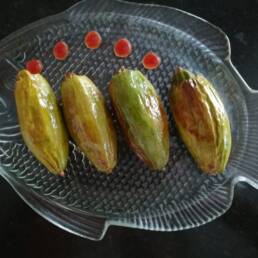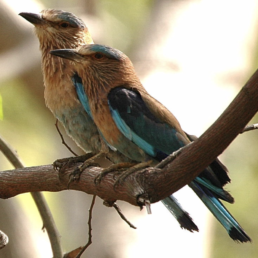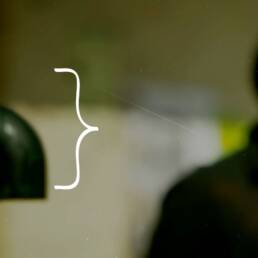There may have been many who missed the quirky mention of Sir Jagadish Chandra Bose in Wes Anderson’s latest film, Asteroid City, set in a fictional desert town in America’s West. Ironically, a century ago, America’s elite scientists had waged a war against this brilliant mind.
Spoiler alert: In the fictional Asteroid City, a group of American teenage honorees (assembled at a youth astronomy convention) play a memory game to pass the time. They must remember and repeat a list of famous names and then add one.
One of the honorees, in the process, mentions the name of Sir Jagadish Chandra Bose – alongside the likes of Antonie van Leeuwenhoek, Cleopatra, and Kurt Gödel—a subtle tribute to one of the greatest minds from India.
The memory game scene in the movie bears resemblance to Ray’s classic Aranyer Din Ratri, possibly showcasing Anderson’s well-known admiration for Ray’s work. What’s remarkable though is to witness a tribute to, not one, but two Indians in a single scene.
It is crucial to understand that the movie is set in fictional America in the year 1953, while Sir J.C. Bose had passed away in 1937. Ironically, in the 1920s, a group of American scientists unjustly discriminated against & discredited Bose’s remarkable scientific achievements.
Sir J.C. Bose is celebrated among the plant biology community today for his groundbreaking discovery that plants possess functional nerves and pulsating cells, much like animals. But there was a time when he was ostracized by the Western scientific establishment.
In his seminal paper titled “American Racism and the Lost Legacy of Sir J.C. Bose,” Peter V. Minorsky compellingly brings to our notice the instances where Bose’s contributions were undermined due to his Indian heritage, highlighting a possible case of deep-rooted racial discrimination.
With meticulous research and captivating examples, Dr. Minorsky sheds light on a disheartening reality that warrants our attention and reflection. And the person who led the anti-Bose campaign was Daniel T. MacDougal, director of the Desert Laboratory, Arizona.
MacDougal adamantly opposed Bose’s discovery, dismissing it as utter nonsense, saying “I wish I could convey to you the bitterness of the British scientists who are compelled by political reasons to sit by and let this Babu put his sensational stuff in England.”
In another letter he wrote “I have about made up my mind I am going to protect the American public from the products of [Bose’s] pathological or East Asian imagination” and dubbed Bose as half-scientific, half-mystical.
Another American plant biologist George J. Peirce wrote “the prevalent impression among the Occidental peoples has been that the Indian brain was imitative and assimilative and sadly lacked inventive faculties.”
Minorsky astutely pointed out that during the 1920s (a particularly dark era of racism in American history), the prevalence of white supremacists among Bose’s opponents may not have been as extraordinary as it seemed. In fact, it was quite the norm.
But Bose was no stranger to racial discrimination, having endured unfair treatment throughout his academic career. Despite being equally qualified, he received only two-thirds of the salary that his European counterpart received for the same position.
Bose’s exceptional brilliance enabled him to transcend the stifling grip of discrimination and emerge triumphant. Moreover, his unique upbringing had endowed him with a profound understanding of the plight of the oppressed.

In order to gain a deeper understanding, let’s take a moment and reflect on an excerpt from Visvapriya Mukherji’s book which narrates (in Bose’s own words) poignant stories about his upbringing and the values that shaped his character.
“ ..In the vernacular school, to which I was sent, the son of the Muslim attendant of my father sat on my right side, and the son of a fisherman sat on my left. They were my playmates. I listened spellbound to their stories of birds, animals, and aquatic creatures…”
“…Perhaps these stories created in my mind a keen interest in investigating the workings of Nature. When I returned home from school accompanied by my school fellows, my mother welcomed and fed all of us without discrimination…”
He further added, “…although she was an orthodox old-fashioned lady, she never considered herself guilty of impiety by treating these ‘untouchables’ as her own children.”
“… It was because of my childhood friendship with them that I could never feel that there were ‘creatures’ who might be labeled ‘low-caste’. I never realized that there existed a ‘problem’ common to the two communities, Hindus and Muslims.”
In today’s divisive society, where unscientific, racist, and casteist beliefs are making a comeback, it is crucial to remember Bose’s legacy who was not only a remarkable scientist, but also exemplified the fight against discrimination and believed in the unity of all communities.
Sources:
Peter V. Minorsky, American racism and the lost legacy of Sir Jagadis Chandra Bose, the father of plant neurobiology, National Library of Medicine, https://www.ncbi.nlm.nih.gov/pmc/articles/PMC7781790/
Mukherji, Visvapriya, Jagadis Chandra Bose, Ministry of Information and Broadcasting, Govt. of India, archive.org




